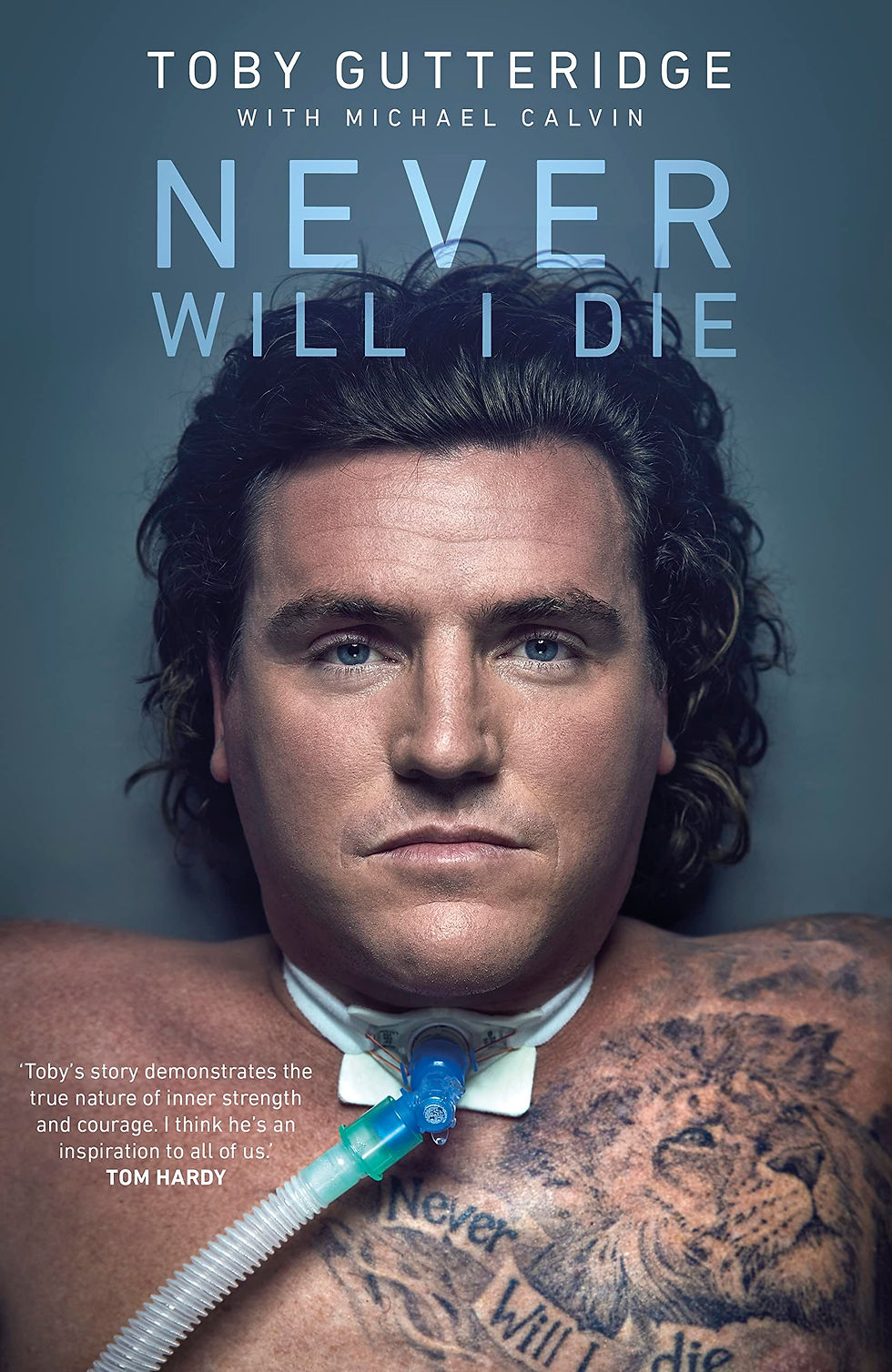Never will I die
- Spartan Stoic

- Mar 10, 2023
- 4 min read
by Toby Gutteridge
Never Will I Die is probably one of the most honest books you’ll read. It’s part autobiography, part sentimental, part soldier’s tale. Toby Gutteridge is an ex-SBS soldier, who, during one of their clandestine operations, was seriously injured and now quadriplegic. Although much of the tale is a common one – troubled childhood, missing sense of belonging, much of the book provides the perspective of someone cast into an incredibly difficult state of being, and having to come to terms to it.
The book starts off fairly routine, telling Toby’s troubled upbringing, moving from South Africa and back again, being bullied in school and not really fitting in. All this disruption made Toby somewhat of a ‘problem child’, metaphorically screaming for attention from dealing with issues a child should not have to be dealing with.
There’s some interesting perspective, despite falling into the wrong crowd, Toby manages to maintain a sense of self-belief which evidently served him well in what was to come. It helped him maintain discipline when it came to fitness, or to meet the difficult challenges of special forces training.
Adversity
But this book quickly moves to his injury, which dominates most of the book. The book is brutally honest, providing detail on what Toby was thinking – from the horror of not being able to move his limbs anymore, to the operation where Toby cannot speak, and having to come to terms with this. Suicide is a significant theme, as Toby struggles to accept his newly imposed limitations. The second half of the book illustrates well his progression from being unable to accept, to coming to terms with it.

The book manages to raise wider issues too on the difficulty finding a care agency. He explains the heart-breaking way that his carers neglect him, until he finds an agency that cares for him properly. He provides advice for those going through similar situations, where their disability is now a commanding part of their life, but tries to advocate remaining focussed on goals and merely reframing life within the new parameters.
I didn’t take that chance for five years after my paralysis. I wasn’t doing myself justice. I didn’t appreciate the magnitude of my good fortune until it was almost too late. I am determined to make the most of that; I’m going to smash the walls down, man. It is only when you’ve been there, to the very edge and back, that you appreciate how valuable and beautiful life is. (Pp.243)
Although I can’t know what it feels like to go through this, it certainly makes for engaging reading. At times the book is extremely forlorn and melancholy, combined with – by his own admission – cliches and quotations from the usual suspects, such as Nelson Mandela. But the book is not always clear, and often quite brief, with its advice.
There are frequent musings on purpose, belief and achievement, and yet it is very much one of those stories that achievement is not driven by being unusual. It’s simple self-belief, for the most part. But this message often gets hidden by difficult and honest themes, which, depending on your preference, could be a good or a bad thing. I did find the book a bit clumsy in its delivery, seemingly jumping around themes a bit haphazardly. It made it difficult to diffuse or shape a story into its core meaning, instead reading more like various short stories interspersed with advice or points.
Darkness
In many ways this book is best at its darkest points. When Toby talks of the impact bullying had on him, which – unfortunately - it feels like there was more to explore on. He expounds in greater detail his acceptance of his disability, or his contemplations of assisted suicide, and these sections are quite riveting, but probably not for someone who wants an easy read.
The scattered delivery does let this story down a little. I sometimes felt small anecdotes or stories were put in as filler. When the book performs more effectively is when its more focussed. The incident that led to Toby’s disability is explored in greater detail, or the process of going to the operating table. But it felt like there was only a snapshot of Toby’s childhood, despite it seeming to shape who he was to a great deal. It felt also like bullying was a central part of what he went through, but strangely no events were explored or built upon.
‘…I’d implore you to see the person, not the wheelchair, because, given the chance, they will give of themselves to you. Body image is important. I still find it very hard to deal with the fact most people don’t see me, though they stare at me. Their focus is on the disability, the chair, and the tubes coming out of my throat. It’s not the staring that bothers me, although it can be off-putting, but the fact they have no idea who I am, what I’ve done, where I’ve been, what I’ve seen.’ (Pp.196)
Final score
This is a mixed book. Toby’s story is amazing, and it is brilliant to hear from the perspective of someone who has survived an inhibiting injury, and how it has changed their life. But sometimes the flow of the book felt unrefined. The inclusion of some stories seemed unnecessary, or, themes would be lost by moving around onto different messages for the reader to take away, before one had been fully fleshed out. I had no problem with the darker parts of the book, actually thinking them some of the best bits - but would warn readers that they are present. His story and strength of character deserves an 11/10, but unfortunately this book seems a little jumbled and only briefly stands out from the crowd.
6/10



